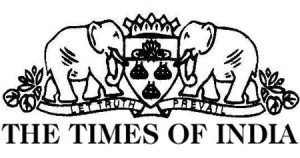PILs against MHA’s ‘snoop diktat’: Supreme Court issues notice to Centre
A three-judge bench of the Supreme Court comprising Chief Justice of India (CJI) Ranjan Gogoi, Justices Ashok Bhushan and Sanjay Kishan Kaul has issued notice to the Central Government on a batch of Public Interest Litigation (PILs) seeking quashing of the Ministry of Home Affairs (MHA) notification dated December 20, 2018 authorising ten central agencies to “intercept, monitor, and decrypt (collectively described as “Electronic Surveillance”) any information generated, transmitted, received, or stored in any computer resource.”
The Court has asked central government to file its reply within six weeks. Thereafter, the Court will also consider the interim prayer seeking immediate stay on the MHA notification. The PILs have been filed by Manohar Lal Sharma, Amit Sahni, Mahua Moitra, Shreya Singhal and Internet Freedom Foundation.
Supreme Court issues notice on IFF’s petition for surveillance reform #SaveOurPrivacy https://t.co/NzaEmvSTtp 1/3 pic.twitter.com/AaIDCOElv2
— Internet Freedom Foundation (IFF) (@internetfreedom) January 14, 2019
The PIL jointly filed by Internet Freedom Foundation and Raman Jit Singh Chima, in addition to the challenge to MHA notification, have also challenged the Section 69 of the Information Technology Act, 2000 (IT Act) and The Information Technology (Procedure for Safeguards for Interception, Monitoring and Decryption of Information) Rules, 2009 (2009 IT Rules) enacted pursuant to Section 69(2) read with Section 87(2)(y) of the IT Act.
Also read: The curious case of a cryptic notification: MHA’s mass snoop diktat is not only unconstitutional, but contrary to IT Safeguard Rules, 2009
Counsels for the Petitioners invited the attention of the Court to its own decision in Justice Puttaswamy (Retd.) vs Union Of India wherein a nine-judge Constitution bench held right to privacy as fundamental right. They also added that the MHA’s notification, Section 69 of Information Technology Act, 2000 and 2009 IT Rules are violative of Articles 14, 19(1)(a) and 21 of the Constitution.
PIL by Internet Freedom Foundation also states that Section 69 of the IT Act gives “overbroad, sweeping, and arbitrary powers to the State to conduct covert electronic surveillance by intercepting, monitoring, and decrypting digital communications.” It also mentions that this order will impact “intellectual privacy”.
The petition has also continuously pointed out that the Executive has been given too much of power. It says: “In the absence of parliamentary or judicial oversight, such electronic surveillance gives the executive government the power to influence the subject of surveillance as well as all classes of persons. This is particularly dangerous since the provision is agnostic with respect to the subject of surveillance, and surveillance takes place without any checks outside the executive wing of government.” It also says that not only is Part III of the Constitution being violated but also the horizontal separation of power between the executive, legislature and judiciary.
Further on, it refers to Kharak Singh v Union of India which said that surveillance places psychological restraints that conditions an individual’s mind and affects her freedom to think and express herself freely, in a way that impacts her personal liberty. The petitioners also mention that the Acts given above enable “the State to conduct perpetual, untargeted, and mass surveillance of her citizens, under a pretext for “investigation of any offence”.
The post PILs against MHA’s ‘snoop diktat’: Supreme Court issues notice to Centre appeared first on TheLeaflet | An Imprint of Lawyers Collective.
Thank you for viewing this legal update on Lex Do It. For more legal news and updates do not forget to subscribe and share! Read Original Post





